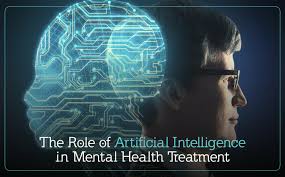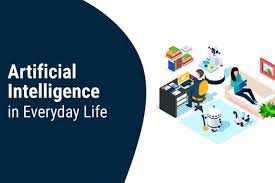
1. AI-Driven Diagnostics and Early Detection
One of the most promising applications of AI in mental health is its potential to aid in early detection and diagnosis. Many mental health conditions, such as depression, anxiety, and bipolar disorder, can be difficult to diagnose, especially in the early stages when symptoms may be subtle. AI-powered tools can help identify patterns in behavior, speech, and even physiological data that may indicate the presence of a mental health condition.
-
Speech Analysis: AI algorithms can analyze speech patterns for signs of mood disorders or cognitive decline. For example, the tone, speed, and volume of speech might reveal early signs of depression or anxiety. AI tools, such as those developed by Woebot Health and Mindstrong, use natural language processing (NLP) and machine learning to assess user input in real-time and provide insights into mental health status.
-
Behavioral Monitoring: AI systems can track behavioral data through smartphone apps and wearables. For example, tracking sleep patterns, physical activity, or changes in social interactions can provide valuable insights into a person’s mental health, helping to spot early warning signs of depression, bipolar disorder, or other conditions.
By detecting issues early, AI can help ensure that individuals receive the appropriate treatment before conditions worsen, potentially improving long-term outcomes.
2. Virtual Therapy and Chatbots
AI-powered virtual therapists and chatbots are gaining popularity as accessible tools for mental health support. These AI-driven solutions can provide instant emotional support, offer therapeutic exercises, and even conduct cognitive-behavioral therapy (CBT). Platforms like Woebot and Wysa use AI to interact with users, offering support for common mental health challenges such as stress, anxiety, and depression.
-
Accessible Therapy: AI chatbots provide 24/7 access to support, helping individuals in need of immediate assistance, particularly when traditional therapy is not available. This can be especially beneficial for people living in remote areas or those with busy schedules who may not have time for regular in-person therapy sessions.
-
Affordability: Virtual therapy through AI can also lower the cost of mental health care, making it more accessible to a wider population. Traditional therapy can be expensive and may not be covered by insurance, but AI-powered services can offer a more affordable alternative.
-
Scalability: AI tools can scale to reach large numbers of people simultaneously, which is crucial in a time when mental health professionals are in short supply, and demand is increasing globally.
While virtual therapists and chatbots are not a replacement for human therapists, they offer a valuable complementary resource for individuals seeking support and guidance.
3. Personalized Treatment Plans
AI's ability to process vast amounts of data allows it to create personalized treatment plans tailored to individual needs. By analyzing a patient's symptoms, history, and even genetic information, AI can help mental health professionals develop more precise and effective treatment strategies.
-
Tailored Interventions: AI can assess which therapeutic interventions are most likely to work for a specific individual based on their unique characteristics. For example, AI could suggest personalized exercises for someone struggling with anxiety or recommend particular coping mechanisms for a person dealing with PTSD.
-
Monitoring Progress: AI tools can track progress over time, assessing the effectiveness of treatments and making adjustments when necessary. This continuous feedback loop ensures that mental health care is more dynamic and responsive, helping to improve outcomes for patients.
This kind of personalized approach could potentially revolutionize mental health care by moving away from a "one-size-fits-all" model to something much more customized and precise.
4. Reducing Stigma and Increasing Accessibility
For many individuals, the stigma surrounding mental health can be a significant barrier to seeking help. AI-powered tools, such as anonymous chatbots and virtual therapy apps, can provide a private, judgment-free space for individuals to address their mental health concerns. This can encourage more people to seek help early, before their symptoms worsen.
-
Anonymity and Privacy: Many people feel more comfortable discussing sensitive issues with an AI-driven system, where they don’t have to face the stigma or potential embarrassment of speaking to a human therapist. AI tools can also ensure that data privacy is maintained, giving users more confidence in their ability to engage without fear of judgment or personal exposure.
-
Global Accessibility: AI can break down geographical barriers, making mental health support available to individuals in underserved or remote locations. By providing easy access to mental health resources via smartphones and computers, AI can help reduce the global disparities in mental health care.
5. Challenges and Ethical Considerations
While AI offers significant potential for transforming mental health care, it also presents several challenges and ethical concerns that need to be addressed.
-
Data Privacy and Security: Mental health data is highly sensitive, and AI systems rely on vast amounts of personal information to function. Protecting the privacy and security of this data is critical. Any data breaches or misuse of personal information could cause significant harm to individuals, undermining trust in AI tools.
-
Lack of Human Empathy: AI-powered chatbots and virtual therapists, while effective in certain contexts, cannot fully replicate the human connection that is central to many forms of therapy. Human therapists offer empathy, nuanced understanding, and complex emotional insights that AI systems are not yet capable of providing. For many individuals, the therapeutic relationship itself is a key component of healing.
-
Over-Reliance on Technology: There is a risk that individuals may rely too heavily on AI tools and forgo seeking in-person care when it is needed. While AI can provide valuable support, it should not be seen as a substitute for professional treatment, especially in cases of severe mental health conditions.
-
Bias and Accuracy: Like all machine learning systems, AI tools are only as good as the data they are trained on. If the data sets used to develop AI models are biased or incomplete, the AI systems could provide inaccurate or harmful recommendations. This is a particularly pressing issue in mental health, where the wrong intervention could have serious consequences.
6. The Future of AI in Mental Health
Looking ahead, AI has the potential to play an even greater role in mental health care. As machine learning models become more sophisticated, they may be able to offer even more accurate diagnoses, more personalized treatment plans, and improved outcomes for patients. In the future, we may see AI being used in combination with other technologies, such as virtual reality (VR) and augmented reality (AR), to create immersive therapeutic experiences.
Additionally, AI may contribute to the ongoing research into the causes of mental health conditions by analyzing vast datasets to uncover patterns and correlations that humans may not be able to detect. This could lead to new treatments, interventions, and prevention strategies.
Conclusion
AI is ushering in an exciting new era for mental health care, offering opportunities for early diagnosis, personalized treatment, and improved access to support. Virtual therapists, AI-driven diagnostic tools, and personalized interventions have the potential to transform how we address mental health, making care more accessible, scalable, and tailored to individual needs.
However, as with any technological advancement, there are ethical considerations and challenges that must be addressed. Ensuring privacy and security, maintaining human empathy in the therapeutic process, and preventing over-reliance on technology will be critical to the responsible integration of AI in mental health care.
As AI continues to evolve, its role in mental health will likely expand, offering both new opportunities and new challenges. It’s up to policymakers, technologists, and mental health professionals to ensure that these technologies are used ethically and effectively to improve the mental well-being of individuals worldwide.

